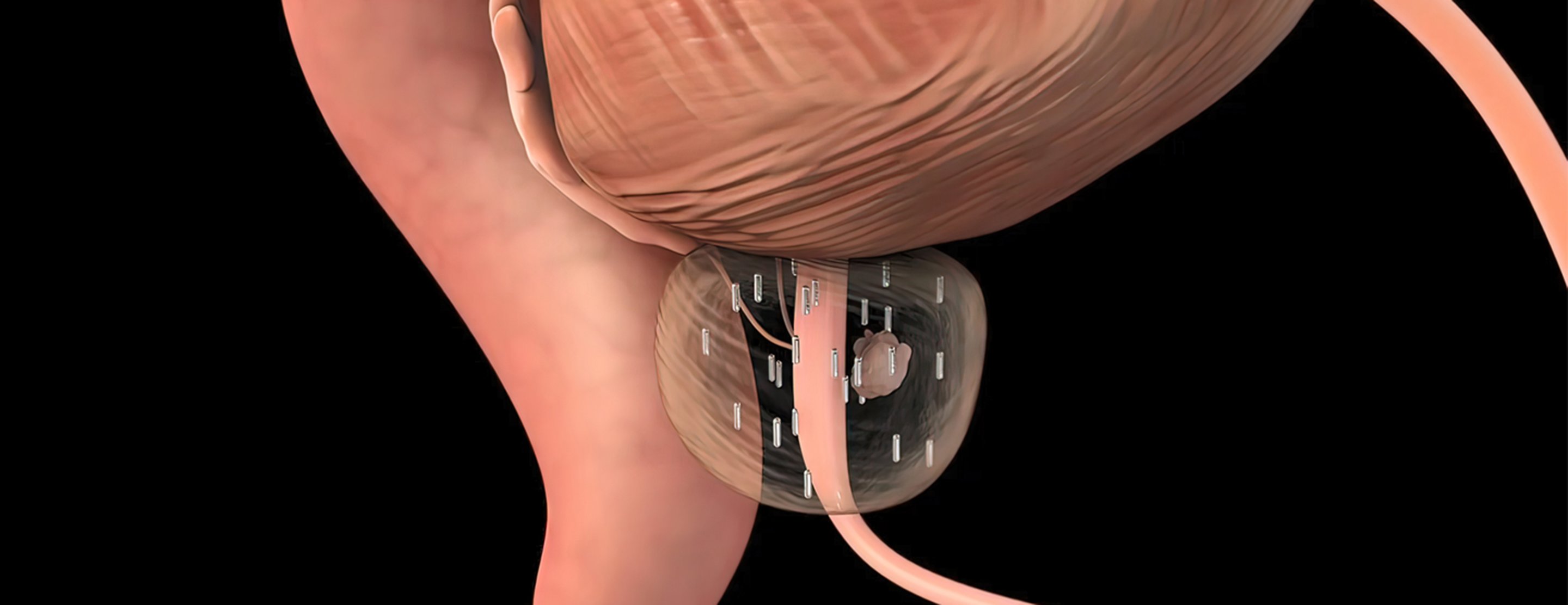Get This Report about Best Prostate Cancer Doctor In Mumbai
Wiki Article
Effective Prostate Cancer Cells Therapy Choices for Men
Prostate cancer cells is a widespread concern amongst men, with treatment alternatives differing depending on the phase and aggressiveness of the condition. While surgical procedure remains a primary treatment technique, there are likewise alternate approaches such as radiation treatment, hormonal agent therapy, and immunotherapy that have shown appealing outcomes. Furthermore, techniques like watchful waiting and energetic monitoring are obtaining acknowledgment for their duty in taking care of prostate cancer cells. Comprehending the subtleties of these therapy options and their performance is important for making informed decisions relating to one's wellness and well-being.Surgical Procedure as Therapy Choice
Surgical treatment stands as a key therapy option for prostate cancer cells clients in instances where the condition is localized and surgical treatment is considered suitable by the health care group. Prostate cancer cells surgical treatment aims to eliminate the malignant cells from the prostate gland, either partly (prostatectomy) or entirely (radical prostatectomy) The decision to decide for surgery is generally based on various variables, including the phase of cancer cells, the client's general wellness, and possible adverse effects.One typical medical technique is robotic-assisted laparoscopic prostatectomy, which uses accuracy and minimal invasiveness contrasted to standard open surgery. This strategy uses robot arms controlled by the cosmetic surgeon to remove the prostate gland with improved mastery and visualization.
While surgical procedure can be efficient in getting rid of local prostate cancer, it might entail threats such as urinary system incontinence and erectile disorder. Patients considering surgery should involve in comprehensive discussions with their doctor to weigh the advantages and possible drawbacks of this treatment alternative.
Radiation Treatment for Prostate Cancer Cells
Having actually discovered the function of surgical procedure in dealing with local prostate cancer cells, the emphasis now shifts to discussing radiation therapy as an additional essential treatment method for this illness. Radiation treatment uses high-energy rays to target and damage cancer cells in the prostate gland. There are two key sorts of radiation therapy typically utilized for prostate cancer: exterior light beam radiation and brachytherapy.
External beam of light radiation includes guiding radiation from an equipment outside the body in the direction of the prostate. This approach is usually carried out daily over numerous weeks. On the various other hand, brachytherapy involves putting contaminated seeds directly right into the prostate, delivering radiation from within. This strategy enables a much more targeted dosage of radiation to the growth while minimizing direct exposure to surrounding healthy and balanced cells.
Radiation treatment can be a standalone therapy for localized prostate cancer or utilized in combination with various other therapies, such as surgery or hormone therapy, depending on the phase and aggressiveness of the cancer. Best prostate cancer hospital in Mumbai. Common side effects of radiation therapy may include fatigue, urinary system problems, and digestive tract troubles, which are generally short-lived and can be handled properly
Hormone Therapy in Prostate Cancer
Hormone therapy is a critical therapy approach in managing prostate cancer, particularly in cases where the cancer has spread out past the prostate gland. Prostate cancer cells typically count on male hormonal agents, such as testosterone, to expand. Hormonal agent therapy, additionally referred to as androgen starvation therapy, aims to either decrease the production of these hormones in the body or obstruct their results on the cancer cells.There are various kinds of hormonal agent therapy readily available for prostate cancer treatment. One typical strategy is making use of medications called LHRH villains and agonists, which work by lowering testosterone levels. An additional alternative is anti-androgens, which block the activity of androgens on the cancer cells. Some guys might take advantage of a combination of these treatments to efficiently manage the cancer.
Hormone treatment can aid decrease the progression of prostate cancer, reduce symptoms, and boost high quality of life. It is not a curative treatment and might come with side effects such as warm flashes, exhaustion, and loss of sex drive - Best prostate cancer hospital in India. Regular surveillance and conversations with health care companies are vital to manage the results of hormonal agent therapy efficiently
Immunotherapy for Prostate Cancer
Immunotherapy has become a promising treatment technique for prostate cancer cells, offering brand-new opportunities for combating the condition. Unlike standard therapies like surgical procedure or radiation, which directly target cancer cells, immunotherapy works by taking advantage of the body's body helpful site immune system to identify and attack cancer cells.One form of immunotherapy being discovered for prostate cancer cells is checkpoint inhibitors. These medications target proteins that avoid the body immune system from identifying and attacking cancer cells. By obstructing these proteins, checkpoint inhibitors can improve the immune action versus prostate cancer cells.
Another strategy includes healing injections, which boost the immune system to target certain antigens discovered on prostate cancer cells. These vaccines can help the body immune system ruin and identify cancer cells more effectively.


Watchful Waiting and Energetic Surveillance
In the realm of prostate cancer cells management, particularly for situations where aggressive treatment may not be instantly essential, the strategy of watchful waiting and energetic security plays a significant duty. Careful waiting involves monitoring the cancer without instant treatment, intervening only if the cancer cells reveals indications of progression. This strategy is often thought about for older individuals with slow-growing lumps or those with numerous health and wellness concerns where the risks of treatment might surpass the benefits.Active surveillance, on the various other hand, includes regular tracking through PSA examinations, digital anal examinations, and routine biopsies. It is typically advised for individuals with low-risk prostate cancer cells to carefully track any adjustments in the cancer's actions. Therapy options can be reassessed. if there are indications of the cancer becoming a lot more hostile.
Both watchful waiting and active monitoring goal to avoid unnecessary therapies and their prospective side effects, such as urinary incontinence and impotence, while guaranteeing timely treatment if the cancer proceeds. These strategies Discover More offer a balance in between handling the cancer cells efficiently and maintaining the patient's lifestyle.
Conclusion

Prostate cancer surgery intends to eliminate the cancerous cells from the prostate gland, either partly (prostatectomy) or completely (radical prostatectomy)Having discovered the function of surgery in dealing with localized prostate cancer, the emphasis now shifts to reviewing radiation therapy as another essential treatment method for this illness.Hormone treatment is a critical therapy approach in taking care of prostate cancer, particularly in instances where the cancer cells has spread beyond the prostate gland. Careful waiting involves monitoring the cancer cells without immediate therapy, intervening only if the cancer shows signs of progression. It is usually recommended for people with low-risk prostate cancer to very closely track any kind of modifications in the cancer see page cells's actions.
Report this wiki page